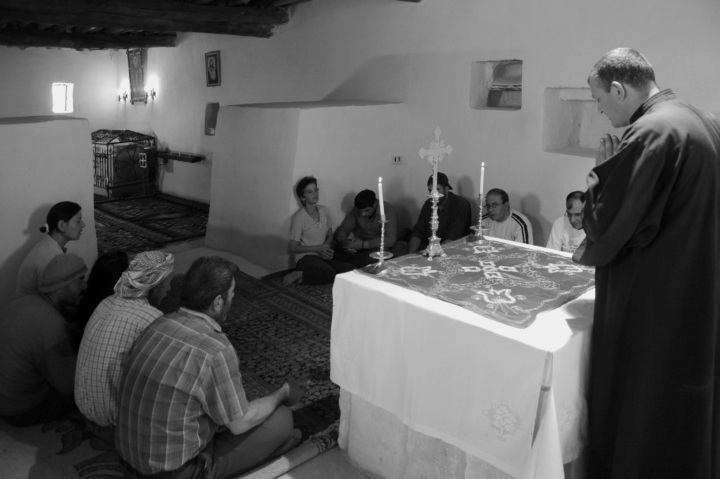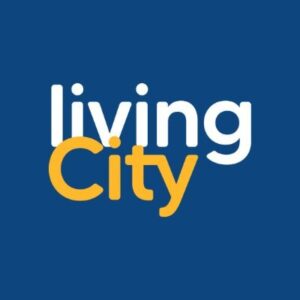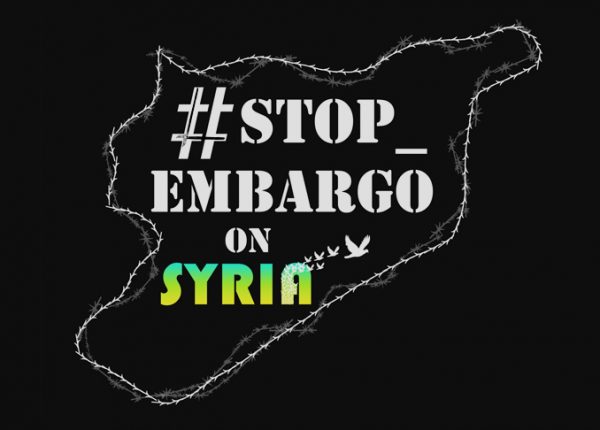
Watch
Jacques Mourad, hostage of ISIS
BY Aurelio Molè.
The story of Father Jacques Mourad, witness of peace, amid violence.
Since the beginning of the war in Syria, Fr. Jacques Mourad, 52, a Syriac-Catholic monk, had chosen to remain among his people — despite the danger.
He was kidnapped in Al Qaryatayn, Syria, where he was a pastor. For four months and 20 days, he was held captive by the ISIS, who subsequently imprisoned and tortured him in Raqqa. Having personally witnessed young people convert to extremism, he has gained significant insight as to why it happens — people of low social status became powerful men “with high salaries, big homes, outlandish cars.”
The war in Syria continues to rage, and it would be imprudent for him to live there. Today he lives in Suleymanya, in the Kurdistan region of Iraq, where he can stay close to those who suffer.
Why did you decide to remain in the Middle East?
My people have completely dispersed: thousands have been deported within the same country, or herded into camps along the borders, without food, water, hygiene. I want to live as they do, as a refugee, poor among the poor. I am a pastor. I must live near my martyred flock.
I live in a monastery of the community of Mar Musa. Specialized in dialogue, we try to bring reconciliation between the Kurds and Christians.
In your book “A Monk Held Hostage”: for the people of Ephrata, you write of a Muslim leader who asks, “How could an educated and good person, who prays five times a day and tries to obey God’s laws, belong to a terrorist group that engages in violence and commits murders and executions?”
During my captivity, I reflected a lot on this. It’s a big question, because it isn’t possible that a person who prays and puts himself in front of God could practice violence. Many jihadists have shared with me that they use the same methods utilized by Mohammed in the beginning of Islam in order to dominate the world.
But is it really possible to commit murder and beheadings while living a true relationship with God? Even if a person is bad, up to what point can the name of God be used to reach their goal? Let us not forget that we Christians have also had our Crusades.
Little by little I understood that every jihadist lives a very intense interior conflict between believing and living to the letter the teachings of Mohammad, and the humanity present in each one of us, which God has endowed us with, which drives us to look after each other. To escape this unspeakable drama, some throw themselves headlong into violence up to death, to martyrdom.

There must have been many difficult moments during the kidnapping …
Every single day was difficult because each day is an entire life. God has created humans in his image, that is, free. Prison can never be a therapy to change people’s attitude. What makes me suffer so much in Syria is the fact that all these prisoners are kidnapped and hidden, so no one thinks more of them. They are all victims of the war, and it is not right that the Western governments don’t take a serious step to save them all.
The most difficult moment for me was when they transferred me from Raqqa to Palmyra. I discovered that they had not kidnapped and imprisoned only me, but also half of my parishioners: men, women, children and elderly. I thought they had all escaped because I had warned them.
Overcoming our surprise, we hugged one another, happy to see each other again alive! I thought I wouldn’t see them anymore, and they thought I had been dead for a while. Reassured and consoled, they no longer felt alone, subject to the moods of jihadists who kept them in prison.
At the same time, the pain I felt was unbearable, as though a sword had pierced my heart. To see my parishioners, my dear children, in the hands of these crazy people was intolerable! I had seen these people born, I baptized them, married them.
How many Christians are left in Al Qaryatayn?
Before the war, the city where I was a pastor had 30,000 citizens. During the war, we welcomed many refugees coming from all over Syria. We even reached more than 55,000 citizens. In my parish, there were around 1,000 people. At the end of the war, there were 500; now, there is no one left. Even today, my city is not safe.
Why did they free you?
The caliph Al Baghdadi freed us under the concession of a mana, a grace, because we Christians of Qaryatayn never took up arms against the Muslims. They remained dumbfounded. Our lives were spared because we remained faithful to the Gospel up to the end, rejecting violence categorically. My parishioners and I, prisoners of ISIS — capable of the worst executions — were freed through our radical exercise of forgiveness.
My parishioners and I, prisoners of ISIS were freed through our radical exercise of forgiveness.
When you were freed and you returned to Al Qaryatayn, which by then was completely under ISIS, you managed to escape through courageous deeds of young Muslims?
With the Muslims, there were always good relationships and true fraternity. This is the true face of Islam. We have the same faith in, and we obey the same God. When we returned to Al Qaryatayn, some Muslim men helped us. In Syria, there were Christians who saved Muslims and Muslims who saved Christians.
In the areas ruled by the Islamic state, it was severely prohibited for Muslims to help Christians. But these young men did not care and risked their life for us. They helped us escape first by having the Christian girls and women wear a black niqab (veil). The blockade was guarded by men who were not allowed to see women’s faces, so they managed to escape. Then a list of 20 sick people, through the intercession of the emir, managed to go to Homs because they needed medical care.
The blockades were also only along the streets, and we locals of Al Qaryatayn knew the desert landscape by heart. Many escaped through that route. On the fortieth day after our return, just like the biblical 40 days in the desert, the time also came for me to leave. A young Muslim man came to pick me up by car because there was a roadblock guarded by foreigners who didn’t know me. Dressed in a kefiah, I arrived after many adventures at Homs. I was finally free, through the help of a Muslim who risked his life for me.
With the Muslims, there were always good relationships and true fraternity. This is the true face of Islam. We have the same faith in, and we obey the same God.
After all these experiences, what does it mean to be a Christian?
A Christian loves everyone, without judging, and is the first to love their enemies (even though I believe that a Christian cannot have enemies).
War divides. It is important to not take any side. The Christian must only be a witness of justice to live with dignity and respect. If a Christian goes against one side, treats it poorly and speaks wrongly of it, it is not according to the Gospel, because Christ on the cross did not go against those who condemned him. He did not judge them; he forgave them.
And so, let us love without ceasing; let us also love those who present themselves to us as enemies. With all believers and people of goodwill, let us launch together a worldwide revolution against violence and for peace, with our faithful prayer, our charity without limits and our joyful hope.
Does it seem an ambitious and idealistic vision? Maybe. But I espouse it. Jesus came to save the world. Isn’t this idealistic?
What do you care most about?
The emigration of Christians from Syria and the Middle East passes in silence. It means cutting the roots of the whole Church. It is a great concern for the future and a personal responsibility of every Christian.
Continue reading on:




